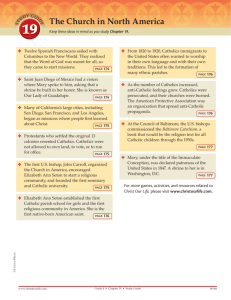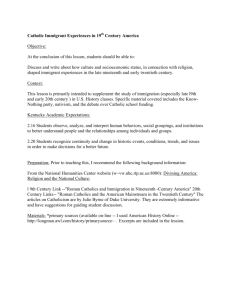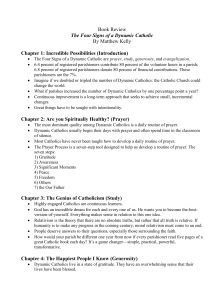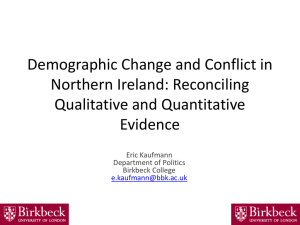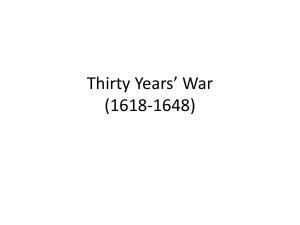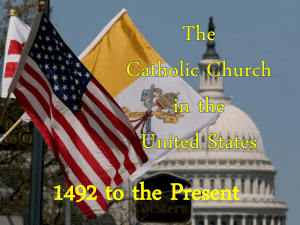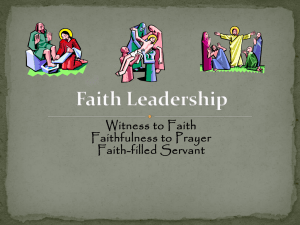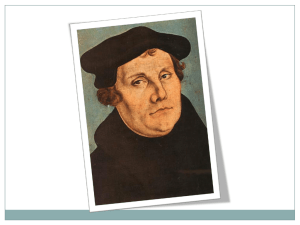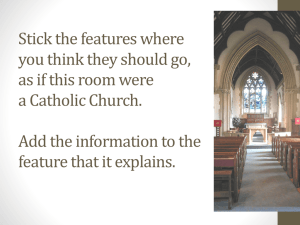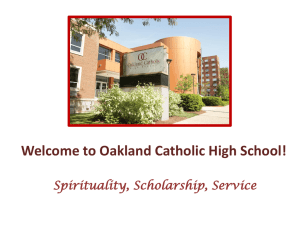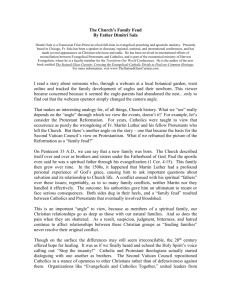Immigration and Anti
advertisement
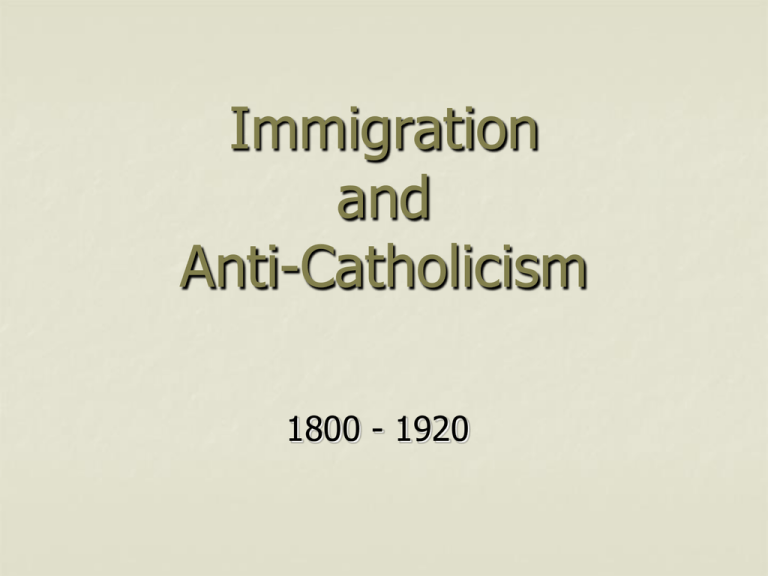
Immigration and Anti-Catholicism 1800 - 1920 Immigration Statistics on Catholics in U.S.: By By By By By 1800 1820 1850 1860 1820 - 40,000 195,000 1½ million 3 million 18 million The increase is almost entirely due to immigration French 1790 – 1800 Caused by French Revolution Influences: Highly authoritarian Love of ritual Devotion to Blessed Virgin Early 19th century, majority of bishops were French immigrants Bishop DuBourg of St. Louis Bishop Machebeuf of Denver Bishop Flaget of Bardstown Bishop Lamy of Santa Fe German 1820 – 1920 Caused by search for economic opportunity and, after 1870, persecution of Catholics in Germany Mostly farmers and tradesmen Settled in “German Triangle” between Cincinnati, St. Louis and Milwaukee Influences: Involved in their local parishes Catholic schools The first Catholics to settle in Ohio were German immigrants who settled near Somerset Irish 1820 – 1900 Came fleeing persecution in Ireland, famine, and looking for economic opportunity Settled in large cities of East Coast and Great Lakes Mostly under 25, illiterate, unmarried Influences: Importance of education Stress religious vocations in their children Rely on clergy – the priest is the most important person in the parish By 1900: 50% of all Catholics are Irish 65% of clergy are Irish 70% of bishops are Irish Hispanics U.S. conquered 1/3 of Mexico in 1848 – California, Arizona, New Mexico, Texas, Colorado 80,000 Hispanic Catholics became part of the U.S. Immigration has increased the number – Hispanics are nearly 25% of American Catholics Influences: Popular devotions Importance of homebased religious traditions Our Lady of Guadalupe – patroness of the Americas Anti-Catholicism Historic Roots of Anti-Catholicism English attitudes towards Catholics Feeling that Catholics are not loyal to the government because of their allegiance to the pope Protestant beliefs that Catholicism is not a Biblical religion because of its reliance on papal teachings, its veneration of Mary and saints, and rituals Nativism (Part 1) 1820 – 1846 Caused by – Increased immigration The rise of Protestant Revivalism An economic downturn and the fact that immigrants were willing to work for lower wages Question of teaching religion in public schools 1830, magazine “The Protestant” founded to “inculcate Gospel doctrines against Romish corruptions.” 1834 burning of Ursuline convent and school in Charlestown, Mass. 1836 publication of “The Awful Disclosures of Maria Monk” – a supposed memoir of life in a convent in Montreal Frontispiece from an edition of The Awful Disclosures of Maria Monk Philadelphia Riots Over the issue of allowing Catholic students to use the Catholic Douay-Rheims Bible in religion class in public schools Led to anti-Catholic riots during which several churches were burned and 14 people died Nativism (Part 2) 1854 – 1860 “Know Nothing Party” established Only “native born” Protestant Americans of European ancestry should be allowed to be citizens Attempted to prevent Catholic citizens from voting “Bloody Monday” – Louisville, 1855 Became majority in Congress – able to pass anti-Catholic laws (all of which were overturned in the courts) Died out by 1860 because they had no stand on the slavery issue Idealized portrait of a member of the Know Nothing Party “I have been educated to enmity toward everything that is Catholic; sometimes, in consequence of this, I find it easier to discover Catholic faults than Catholic merits.” Mark Twain Nativism (Part 3) 1887 – 1898 Main Issue: Catholic Schools Belief that Catholic education is subversive and students are being taught to be loyal to the pope rather than good American citizens Fear that Catholics will overthrow the government and replace it with a theocracy, getting rid of the Bill of Rights Immigration is still an issue, especially as more immigrants from Eastern Europe are entering the country Important spokesperson – political cartoonist Thomas Nast The Ku Klux Klan 1920s See themselves as protecting America for white, Protestant Americans against Blacks, Jews, Catholics and Mexicans Against Al Smith, the first Catholic candidate for president Most organized anti-Catholicism ends with the election of John F. Kennedy to the presidency "I am not the Catholic candidate for President. I am the Democratic Party's candidate for President who also happens to be a Catholic. I do not speak for my Church on public matters — and the Church does not speak for me.“ Kennedy to the Greater Houston Ministerial Assc. In 1960 Anti-Catholicism Today Little organized anti-Catholicism A few Fundamentalist Christian groups – especially Jack Chick Publications Anti-Catholic attitudes are still fairly common – it has been called “the last acceptable prejudice” recently The clergy pedophilia cover-up brought a lot of those attitudes out
